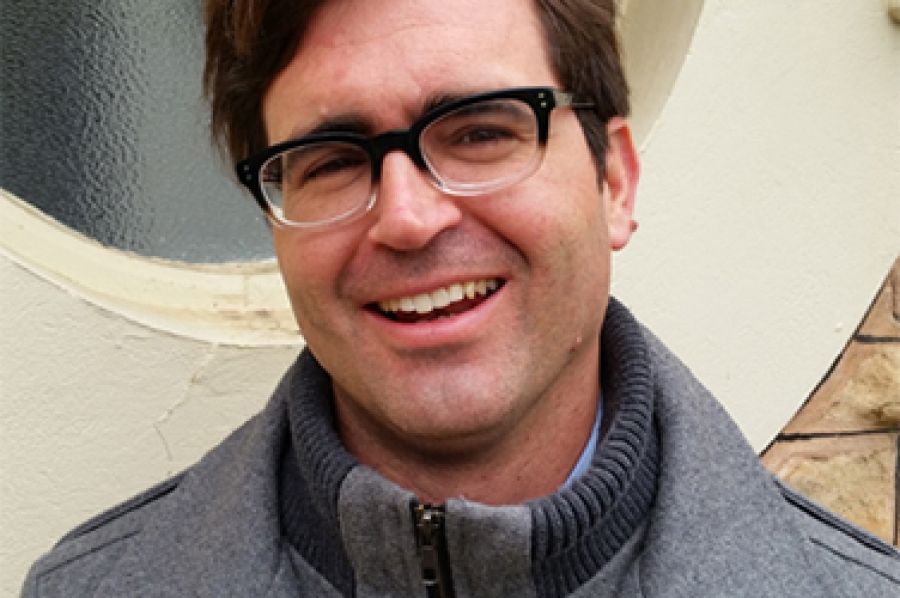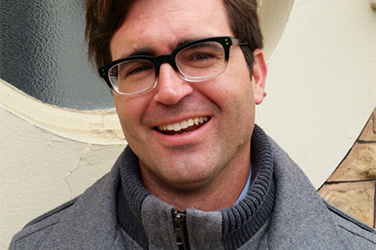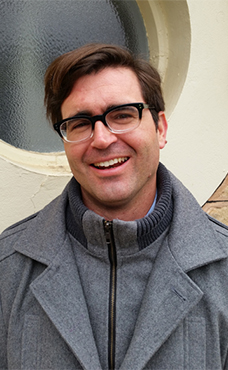
- Free Article: No
- Contents Category: Open Page
- Custom Article Title: An interview with Shannon Burns
- Review Article: Yes
- Article Title: An interview with Shannon Burns
- Online Only: No
- Custom Highlight Text:
Hell is predictable. Nothing changes. You are always the same, and the people around you are always the same. They say the same things, have the same thoughts, repeat the same gestures, stage the same hostilities or enthusiasms, over and over without end.
- Featured Image (400px * 250px):

- Alt Tag (Featured Image): Open Page with Shannon Burns
What’s your favourite film?
Modern Times, Ulysses’ Gaze, The Bicycle Thief.
And your favourite book?
It must be The Brothers Karamazov.
Name the three people with whom you would most like to dine.
I’ll stick to the living: Cardi B, Michael Jordan, Werner Herzog.
Which word do you most dislike, and which one would you like to see back in public usage?
‘Toxic’ sends me to sleep, but any word that is habitually used for rhetorical effect (usually exaggeration) is similarly annoying. I have a nostalgic feeling for ‘pluralism’.
Who is your favourite author?
It’s got to be Shakespeare. Sorry. But who goes more than six months without a strong dose? Not me.
And your favourite literary hero or heroine?
Achilles or Odysseus. Both are probably now registered as anti-heroes instead of heroes, which makes them even more compelling.
Which quality do you most admire in a writer?
A complex and protean individuality, expressed in both style and content.
Which book influenced you most in your youth?
Far too many. My youth (I’m thinking of fifteen to eighteen, in particular) was made of books. A collection of Greek Lyric Poetry, translated by Richard Lattimore, had a lasting impact, alongside a Collected Keats. I seemed to live inside Great Expectations, Tess of the d’Urbervilles, Wuthering Heights, Les Misérables, Anna Karenina, A Portrait of the Artist as a Young Man, collections of plays by Aeschylus and Sophocles. The influence wasn’t always good.
Name an early literary idol or influence whom you no longer admire – or vice versa.
I was irritated by Madame Bovary as a teenager, and Kafka left me cold. Now they are among my favourites.
Do you have a favourite podcast?
I mostly listen to sport podcasts. I know exactly what is happening in the world of soccer each week, though I never watch a game.
What, if anything, impedes your writing?
Aside from financial constraints and family obligations? Fear of losing control, of being transformed by the moods and passions driving whatever I’m trying to create, in a bad way. I’m never willing to give myself fully to writing – to risk becoming another kind of person in the process – which I suspect you must do if you want to write as well as you can and create something truly compelling.
What qualities do you look for in critics, and which ones do you enjoy reading?
I admire close reading and stylish prose. I want attention to language and form, analysis that draws from a rich store of conceptual knowledge and a solid understanding of literary history. From there, firm opinions or fine judgements are a bonus, but I want that bonus too, because I’m greedy. I also appreciate unconventional or ‘experimental’ criticism, which is hard to pull off but rewarding when it works. Among Australians, Melinda Harvey and James Ley are particularly impressive.
How do you find working with editors?
I’d be an idiot without them.
What do you think of writers’ festivals?
I’ve grown to appreciate them, or the parts of them that deal with literature instead of journalism or politics. It’s pleasant to sit among people who are attached to fiction and poetry, people who are invested in something marginal, for just a little while.
Are artists valued in our society?
Some are. Most serious writers aren’t.
What are you working on now?
A profile of Brian Castro.



Comments powered by CComment